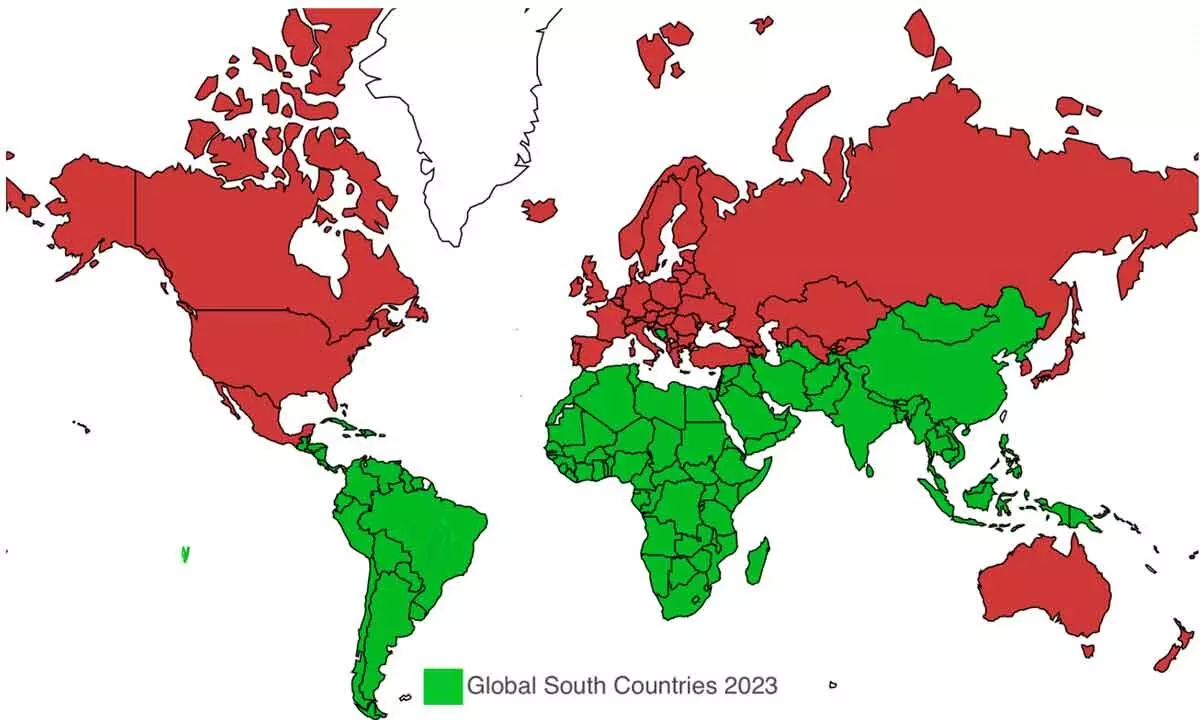Indian diplomacy is about ‘Vishwa Bandhutva’
India has consciously worked toward building an image of a reliable partner willing to share its knowledge, technology and resources with the world without hesitation or precondition
image for illustrative purpose

When Prime Minister Narendra Modi arrived at Port Moresby in Papua New Guinea (PNG), he received a surprising welcoming gesture from the country’s Prime Minister James Marape, who, in an Indian tradition, touched his feet as a mark of respect.
In Diplomacy, there are no random acts. On the contrary, every move, gesture, and phrase is carefully thought over with a clear intent of sending out a message. So be it giving a cold should or touching feet, nothing is unplanned action. I learnt about diplomatic gesturing from an Indian diplomat with whom I was in Iraq a few years ago. Take, for example, the 49th Summit of G7 held in Hiroshima, a city which has recovered from the catastrophic damage caused by an atomic bomb. Japan which holds the G7 presidency for 2023, had gathered world leaders in Hiroshima to express its commitment to peace.
Diplomatically India has made tremendous progress in the past decade, as it curved out a new avatar for Bharat where it has donned the mantle of Vishwa Bandhu (a friend of the whole world,) advocating Vishwa Bandhutva (Universal Brotherhood), especially with small, disadvantaged, and crisis-stuck countries of the global south.
Though India was known for using soft power that included the use of cultural heritage, Bollywood, global peacekeeping missions under the UN, etc., however, the emergence of an assertive Bharat is a recent phenomenon wherein it has confidently followed a policy of strategic ambiguity while exerting a salient influence over global issues.
Under PM Modi, New Delhi’s diplomacy is shaped around the smart positioning of Bharat’s ancient knowledge and wisdom, such as Yoga and Ayurveda, sharing India-built smart technology for digital transformation such as Aadhar (a 12-digit individual identification number), UPI (real-time inter-bank payment gateway) and deploying a variety of resources to support nations facing an emergency due to financial or climatic crisis and or due to conflict. In addition, India has consciously worked toward building an image of a reliable partner willing to share its knowledge, technology and resources with the world without hesitation or precondition.
Another important factor, since 2014, of Indian diplomacy has been PM Modi’s personal relationships with heads of state worldwide. He ushered in informality in public interaction among world leaders. Be it, Modi hugging world leaders or US President Joe Biden asking for Indian PM’s autograph- all are gestures that world leaders are employing to navigate the complex and multifaceted process of diplomacy. The messaging is clear the leaders are exploring ways to find common ground among like minded-nations with shared interests and challenges.
Under PM Modi’s leadership, India has voluntarily taken up the responsibility to champion the concerns, expectations and aspirations of small, underdeveloped and developing nations. When PM Modi refers to 14 Pacific island countries (PICs), who are part of the Forum for India–Pacific Islands Cooperation FIPIC), as ‘large ocean countries’ instead of small island states, Bharat is sending out a message in the true spirit of an equal partner, that it wants to redefine some of the western bias towards smaller countries of the global south.
In times of crisis, New Delhi also reached out with humanitarian aid to nations that were in divergence with India on its foreign policy. For example, Turkey was in a Pakistan camp on the Kashmir dispute, and Kyiv was upset with India’s neutral stand in the ongoing Russian- Ukrainian war. However, such diplomatic differences didn’t prevent India from upholding its global commitment and responsibilities.
While confronting adversaries, be it Pakistan or China- New Delhi has not hesitated to use force. Similarly, on the diplomatic front, it has repeatedly sent discreet yet clear warnings to both countries to mend their behaviour. Indian PM, at a meeting with the Quad group leaders, said, “We strongly oppose destabilising or unilateral actions that seek to change the status quo by force or coercion.” A message aimed at China - which has been using economic tactics to gain leverage over poorer countries and also its military expansion in the Indo-Pacific. In recent years, at the global stage, including at the UN, Indian diplomats, led by Foreign Minister Dr Subrahmanyam Jaishankar, have not minced their words in expressing the priorities and concerns of India.
(The author is Founder of My Startup TV)

